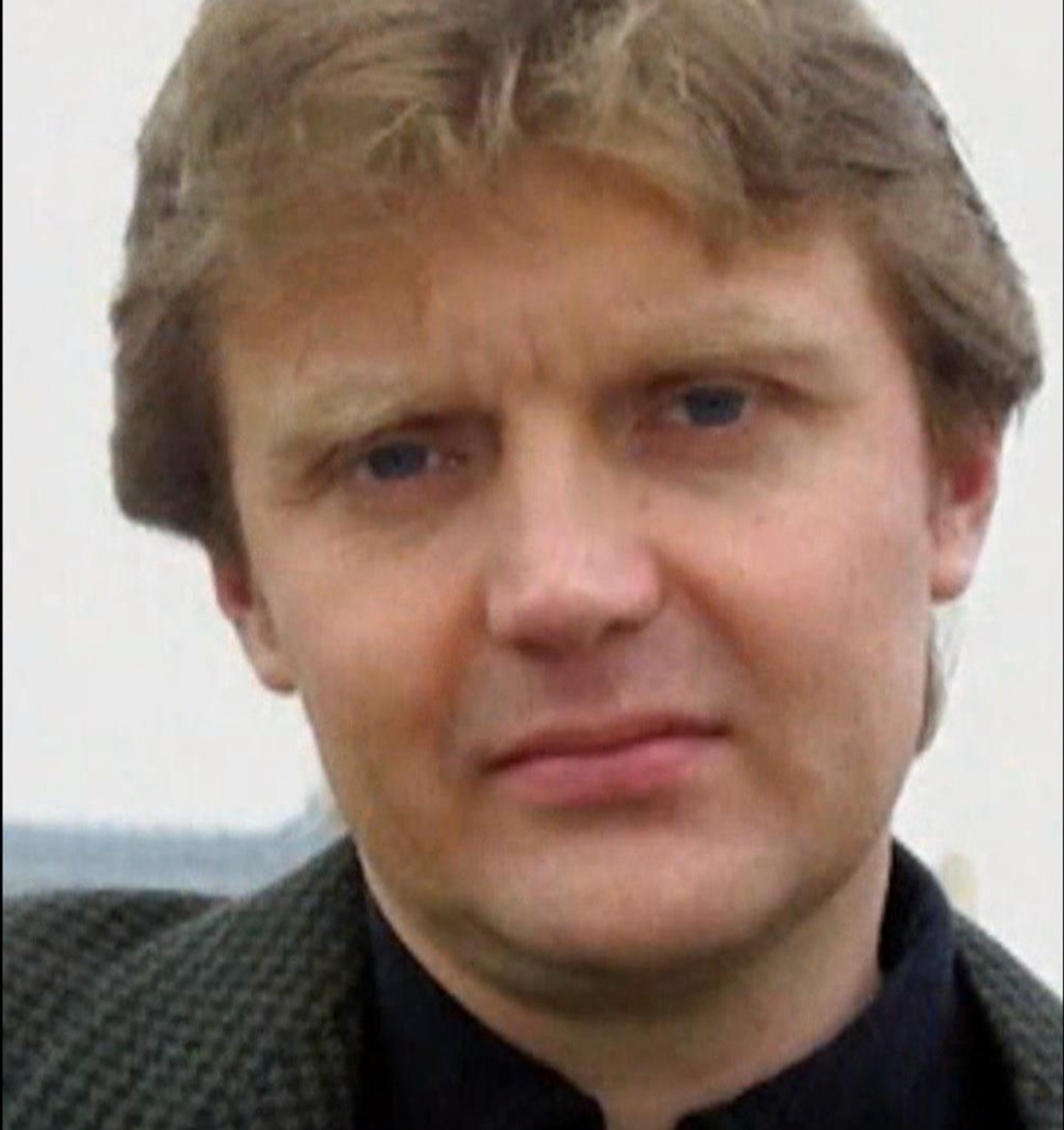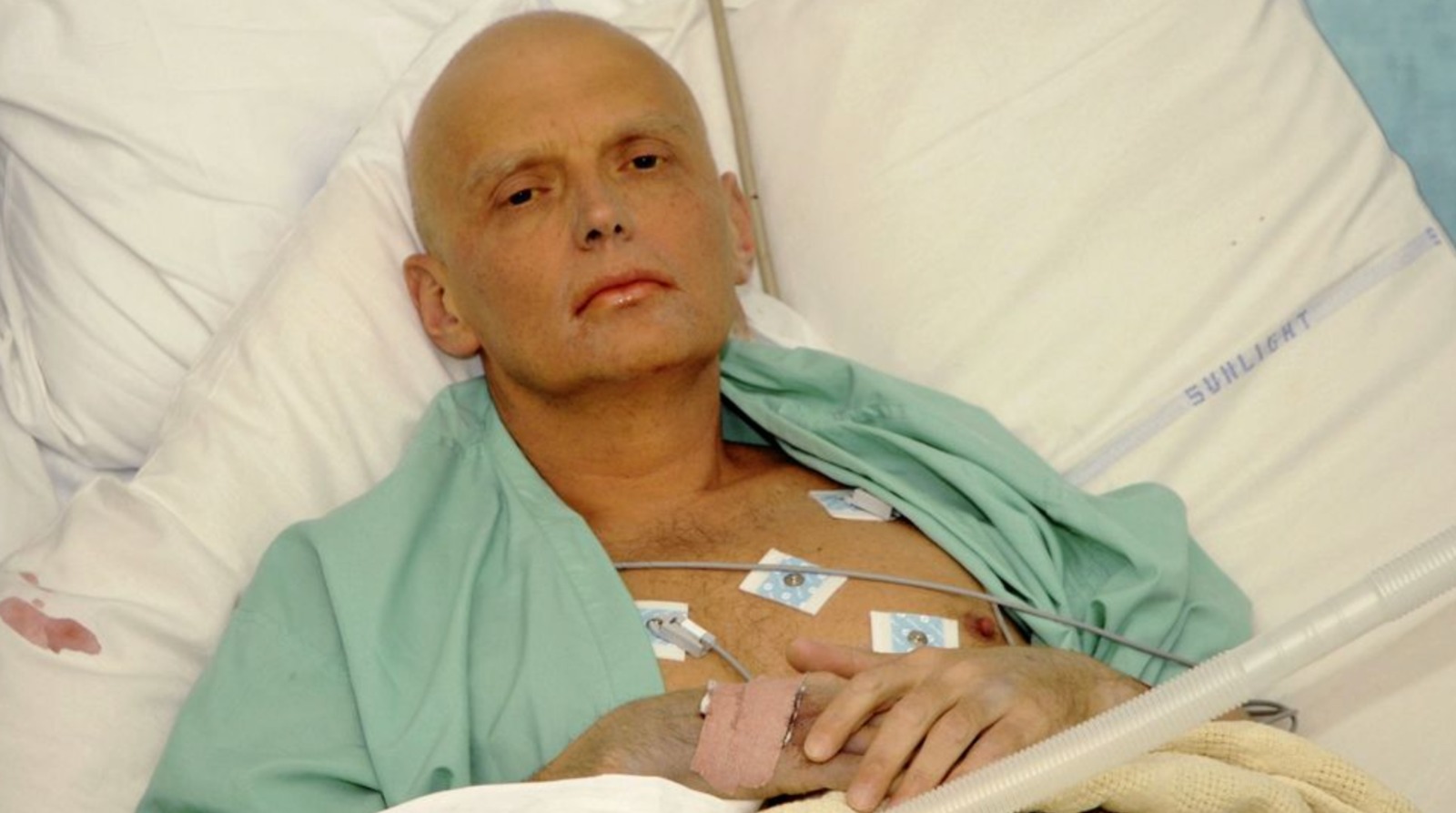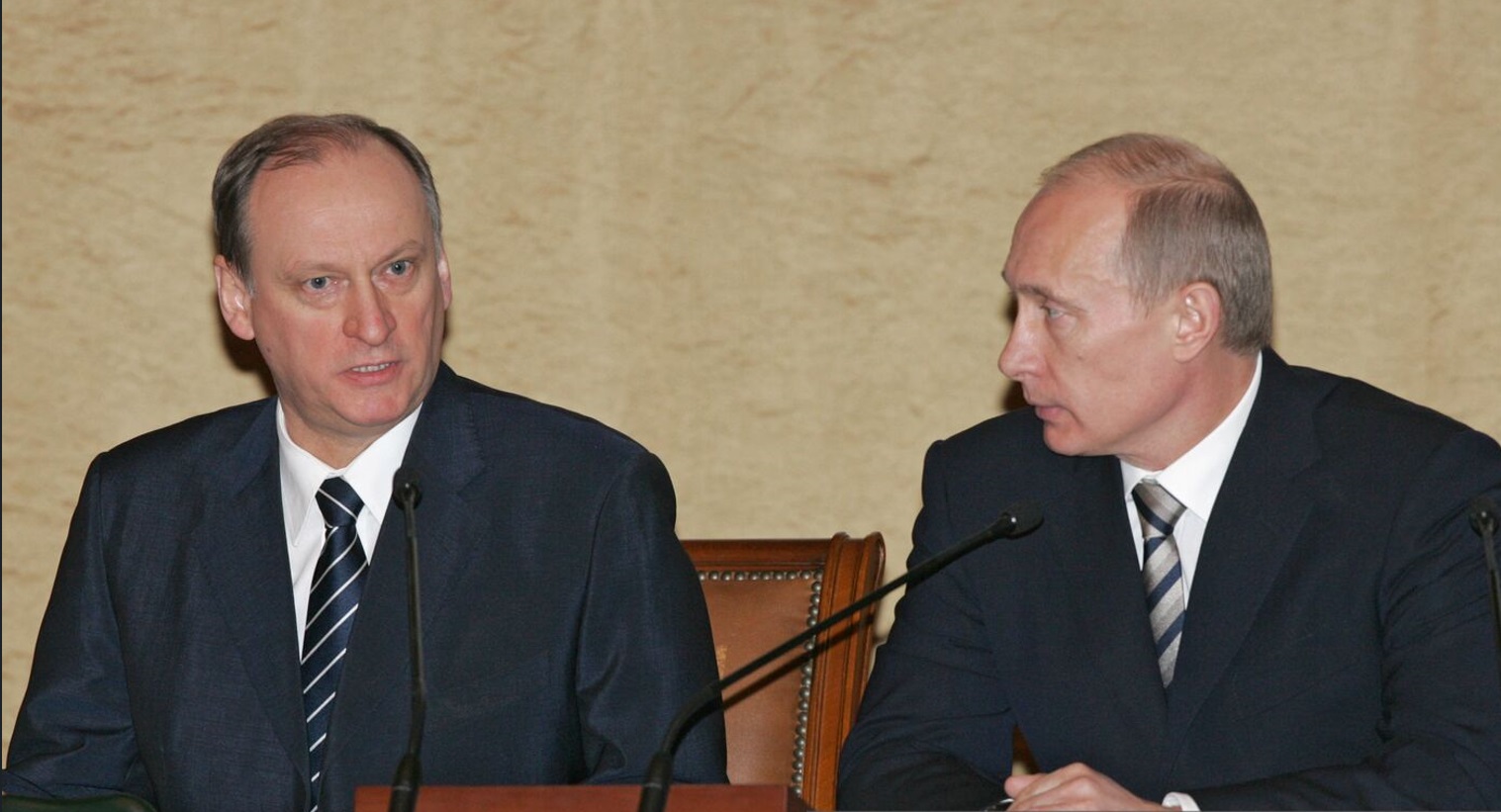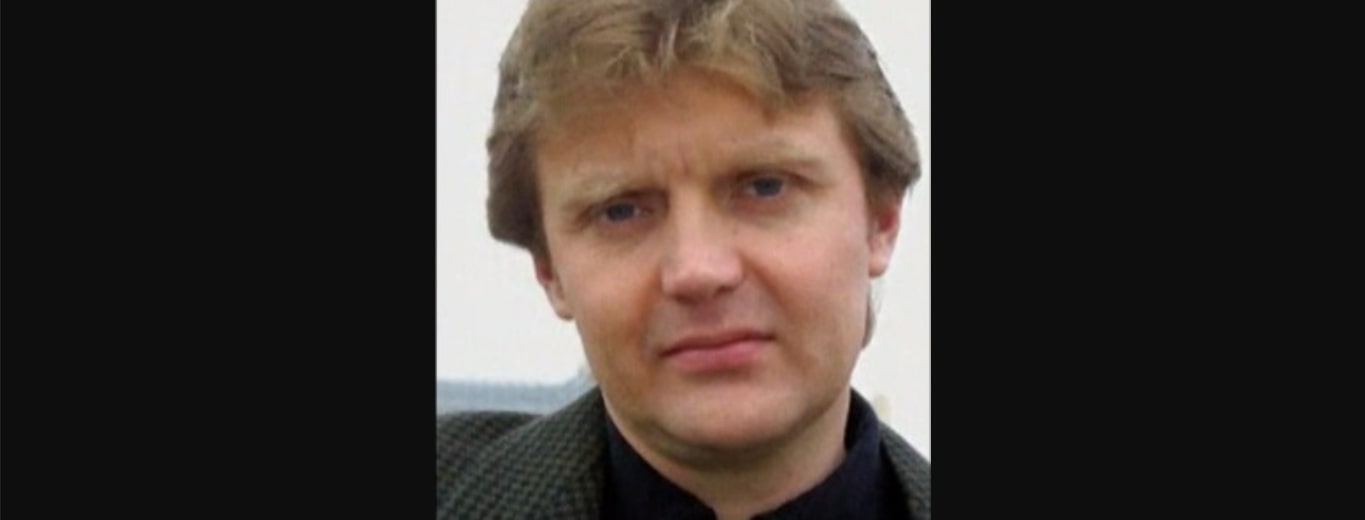NBC’s ‘Dateline: The Real Blacklist, Russian Spy’ investigates the 2006 death of former Russian spy and businessman Alexander Litvinenko in London, England. The episode takes the viewers through the incredibly complicated chain of events across several countries, from the UK to Moscow, Russia, and tries to find answers by interviewing all the personnel involved. If you’re looking for more information regarding the case, here’s what we know so far.
Who was Alexander Litvinenko?
Alexander “Sasha” Litvinenko was born to Walter and Nina Litvinenko in Voronezh, Russia, on December 4, 1962. His parents divorced when he was very young, and he spent parts of his childhood living with his father and paternal grandparents in Nalchik, North Caucasus, his mother in Moscow, and an aunt in Morozovsk. In the early 70s, he returned to Nalchik and spent the rest of his preadolescence there. The 17-year-old finished his schooling in 1980 and applied to the military university.

According to his wife, Marina Litvinenko, he applied to a university but could not secure a place. He attended a training center for Interior Ministry forces in North Ossetia. He graduated in 1985 as a lieutenant and served in the Dzerzhinsky Division of the forces of the Interior Ministry between 1985 and 1988. Sasha’s duties seemed to have included intelligence work of protecting trains carrying gold bullion. In 1988, he was recruited to join the erstwhile Committee for State Security (KGB).
He underwent intelligence training at a Siberian KGB facility and was posted to KGB headquarters in Moscow in 1991. Sasha had married his first wife, Natalia, and had two children with her by August 1991. He was assigned to the Economic Security and Organized Crime Unit in 1991 and was transferred to the Anti-Terrorism Department of the Federal Counterintelligence Service (FSK). According to Marina, he was investigating crimes being committed against wealthy Georgians who had migrated to Moscow.
In June 1993, he met Marina while working on a case, and they gave birth to their son, Anatoly, in June 1994. Sasha and Marina Litvinenko married in October 1994. According to Marina, Sasha was investigating an assassination attempt on a significantly influential and wealthy Russian businessman, Boris Berezovsky. The attack occurred in the form of a car bomb that exploded outside Boris’ Moscow office, resulting in the death of his driver and his sustaining grave injuries.
According to reports and Boris’ later testimonies, he and Sasha became quite close during the investigation. He said on the show, “This incident resulted in Sasha and me becoming close friends.” Their bonds grew stronger when Sasha stopped the police from arresting Borris following the murder of Vlad Listyev, a popular TV presenter working for an independent television channel controlled by the Russian Moghul. After a brief stint in the Anti-Terrorist Centre of the FSK during the First Chechen War, Sasha joined the Department for the Investigation and Prevention of Organised Crime (URPO) in the summer of 1997.
How Did Alexander Litvinenko Die?
According to Marina, Sasha was tasked with several URPO operations that he regarded as unlawful in late 1997. She mentioned three operations, in particular, one of which was the alleged order to assassinate Boris. After several meetings with Boris, Sasha managed to convince him it was a severe threat. Boris reminisced on the show, “Alexander came to me and said, ‘Boris, it’s unbelievable. I got orders to kill you. I know these people. It’s not a joke.” Instead of carrying out the orders, Sasha did something remarkable for a serving FSB officer.

He went public, holding a TV news conference with fellow officers on November 17, 1998. He denounced the assassination plot and exposed alleged corruption in the FSB. While his colleagues attempted to mask their identities, Sasha did not. According to reports, Sasha’s activities caused a major embarrassment to the organization and its chief at the time, Vladimir Putin. Sasha and his colleagues were dismissed from the FSB in December 1998. However, Boris hired them as consultants.
Sasha was arrested on March 25, 1999, charged with exceeding his authority by assaulting a suspect and detained in the FSB Lefortovo prison in Moscow for eight months. As soon as he was released from jail, the FSB allegedly fabricated other charges against him but got acquitted. While he was being charged for the third time, Sasha became increasingly concerned with the safety of his family. Marina claimed they received death threats, and the family fled Russia in late September 2000 with Boris’ assistance.
On November 1, 2000, Sasha, Marina, and Anatoly Litvinenko flew to London and lived in the UK for six years until Sasha’s death on November 23, 2006. The Home Office granted the family’s asylum claim in May 2001 and endowed citizenship in October 2006. During this period, Sasha wrote inflammatory books and articles accusing the Russian government of mass murder and war-mongering. He also authored several pieces, personally attacking President Putin. Sasha blamed Putin for silencing him and recently murdering a critic in late 2006.
On November 1, 2006, Sasha suddenly fell ill after dinner. He suffered from abdominal pain, profuse diarrhea, and frequent bouts of vomiting. Sasha was admitted to Barnet Hospital two days later, and the doctors could not diagnose his sudden ailment. Sasha and Marina suggested poisoning, though the medical professionals could not find any trace of poison in his system. He was transferred to University College Hospital (UCH) on November 17, where he died a week later on November 23.
Killers Identified: Andrei Lugovoi and Dmitri Kovtun
A few medical professionals at the Atomic Weapons Establishment (AWE) found Sasha had been poisoned with radioactive polonium-210 on November 23, hours before he died. On the show, Steve Fowler, a radiation specialist, noted that Polonium-210 is a radioactive substance used to reduce static electricity in industries and acts as a trigger for nuclear bombs. He also stated how the expensive material is manufactured in nuclear reactors and is strictly controlled by governments.

The Scotland Yard detectives began investigating the case and traced Sasha’s activities on November 1, 2006. According to police reports, he boarded a bus to central London for several meetings. However, the investigators found no traces of polonium on his bus ticket. He had lunch with a well-connected Italian contact, Mario Scaramella, a nuclear waste and security consultant, in a sushi restaurant at 3:30 pm. After lunch, Sasha met with Boris in his office. Mario and Boris were removed as suspects because the police found no motive.
However, they caught their breakthrough when they looked into Sasha’s last meeting of the day with former KGB agent Andrei Lugovoi and his business partner, Dmitri Kovtun. He met them at the Pine Bar at the up-scale Millennium Hotel and had tea. When the investigators looked into them, they found traces of the radioactive substance wherever they had gone – from the planes they flew in, the hotels they stayed in, the restaurants they dined at, to the seat in a soccer stadium Andrei watched a game in.
On May 28, 2007, the British Foreign Office submitted a formal request to the Russian government for the extradition of Andrei to the UK to face criminal charges relating to Sasha’s murder. Russia turned down the request, and a 2016 UK public inquiry found him and Dmitri responsible for the homicide. The probe also suggested they were acting under the orders of the FSB and were allegedly approved by Nikolai Patrushev, the former FSB Director, and President Putin.
In September 2021, the European Court of Human Rights (ECHR) held Russia responsible for the murder and ordered the state to pay €100,000 in non-pecuniary damage and €22,500 for costs and expenses to Marina. Russia continues denying the allegations and is yet to pay Marina the court-ordered charges.
Read More: Marina Litvinenko: Where is Alexander Litvinenko’s Wife Now?


You must be logged in to post a comment.